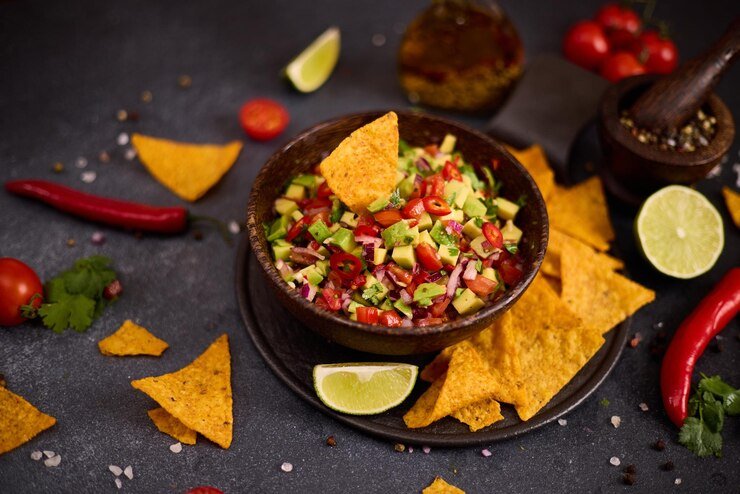Mexican cuisine is a vibrant tapestry of flavors, colors, and traditions. Its rich history and cultural significance extend far beyond the tantalizing tastes that make it beloved worldwide. For many, Mexican food is a gateway to understanding the country’s heritage and identity. This blog post explores the multifaceted cultural significance of Mexican food, revealing how each dish tells a story of Mexico’s past, celebrates its diversity, and brings people together.
The Heartbeat of Mexican Culture
Food is an integral part of Mexican culture, transcending mere sustenance. It reflects the history, geography, and social fabric of the country. From the bustling street markets of Mexico City to the family kitchens in rural villages, food binds communities and preserves traditions.
Mexican cuisine has deep roots in pre-Columbian history, with staples like corn, beans, and chili peppers forming the backbone of the diet for centuries. These ingredients are not just foods but symbols of survival, resilience, and identity. Corn, in particular, is revered as a sacred plant, central to the creation myths of many indigenous cultures. You can visit : best restaurants in rye victoria
The Spanish conquest introduced new ingredients and techniques, blending with indigenous traditions to create the rich, diverse cuisine we know today. This fusion of old and new, local and foreign, is a testament to Mexico’s complex history and its ability to adapt and thrive.
Regional Diversity and Culinary Heritage
Mexico’s diverse geography gives rise to a rich variety of regional cuisines, each with its own unique flavors and traditions. From the seafood-rich dishes of the coastal regions to the hearty stews of the central highlands, Mexican cuisine is a reflection of the country’s varied landscapes.
In Oaxaca, known as the “Land of Seven Moles,” intricate sauces made from a blend of chilies, nuts, seeds, and spices are a culinary art form. Each mole tells a story of the region’s history and cultural influences, from pre-Columbian times to the present day.
In Yucatán, the cuisine is heavily influenced by Mayan traditions, with dishes like cochinita pibil (slow-roasted pork) and sopa de lima (lime soup) showcasing the region’s unique flavors and cooking techniques. These regional variations highlight the incredible diversity within Mexican cuisine and the importance of local ingredients and traditions.
Street Food and Social Connection
Mexican street food, or antojitos (little cravings), is a vibrant and essential part of the country’s culinary landscape. From tacos and tamales to elotes (grilled corn) and churros, street food offers a taste of everyday life in Mexico.
Street food vendors, or taqueros, are often seen as cultural ambassadors, preserving traditional recipes and techniques while providing affordable, delicious meals to locals and visitors alike. The bustling markets and street corners where these foods are sold are social hubs, where people from all walks of life come together to eat, chat, and share in the communal experience of food.
The popularity of Mexican street food has spread worldwide, bringing the flavors and traditions of Mexico to new audiences. Yet, its cultural significance remains deeply rooted in the daily lives and social interactions of the Mexican people.
Mexican Food in the Global Context
Mexican cuisine has become a global phenomenon, with its vibrant flavors and diverse dishes enjoyed around the world. However, the globalization of Mexican food has led to both opportunities and challenges.
On one hand, the international popularity of Mexican cuisine has elevated its status and provided economic opportunities for chefs and food producers. On the other hand, the commercialization and simplification of traditional dishes can lead to a loss of authenticity and cultural significance.
It is important to celebrate and support authentic Mexican food, recognizing the cultural heritage and traditions that underpin each dish. By doing so, we honor the rich history and diversity of Mexican cuisine and ensure its continued vibrancy for future generations.
The Future of Mexican Cuisine
The future of Mexican cuisine is bright, with a new generation of chefs and food enthusiasts exploring innovative ways to honor and evolve traditional dishes. These culinary pioneers are pushing the boundaries of Mexican food, incorporating modern techniques and global influences while staying true to their roots.
At the same time, there is a growing movement to preserve and protect traditional foodways, ensuring that the cultural knowledge and practices that have been passed down through generations are not lost. This balance of innovation and preservation is key to the continued vibrancy and relevance of Mexican cuisine.
The global appreciation for Mexican food also presents an opportunity to promote cultural understanding and respect. By sharing the stories and traditions behind each dish, we can foster a deeper appreciation for the rich cultural heritage of Mexico and its people.
Conclusion
Mexican food is more than just a culinary delight; it is a reflection of a rich and diverse cultural heritage. Each dish tells a story of history, identity, and community, connecting people to their roots and to each other.


